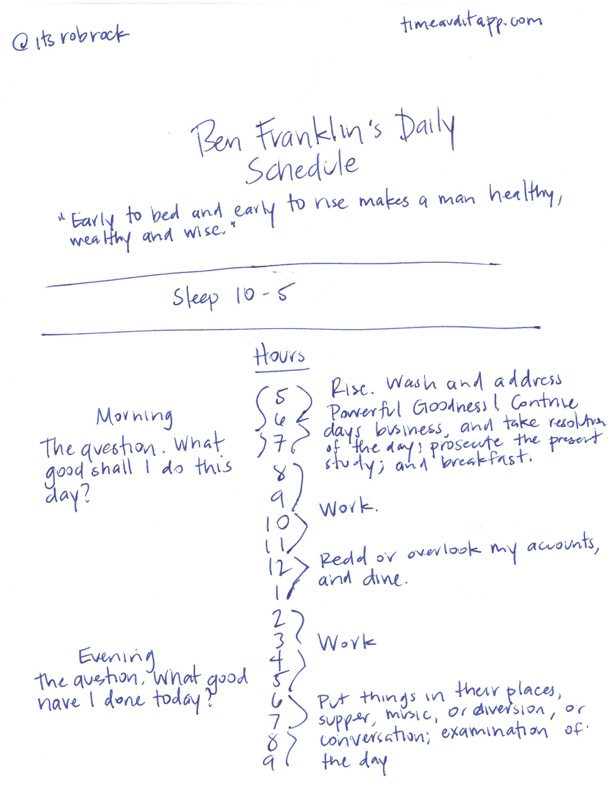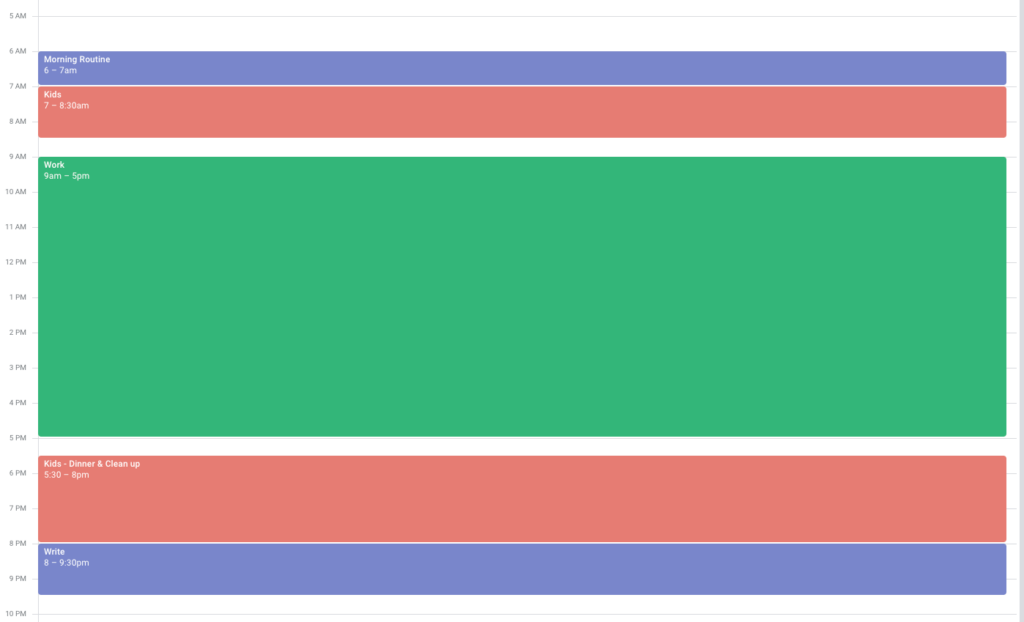What is time blocking?
Time blocking is a productivity technique where you divide your day into distinct blocks of time, each dedicated to a specific task or similar grouping of tasks. During each block, you focus solely on the task assigned for that time period, doing your best to minimize distractions and multi-tasking.
Time blocking helps you organize your day, prioritize your tasks and set aside time to complete specific tasks.
Where did time blocking come from?
Similar to may of the other traditions that have made their way into modern culture, time blocking may have originated from religious practices. In specific, the monastic tradition of separating the day into different blocks that focused on different types of work.
No matter your level of knowledge about the actual lives of monks, you probably have a picture of the monk lifestyle in your head. Robes, shaved heads and often non-verbal.
Update your picture to include discipline. Monks are regimented in how they choose to operate daily. They wake up at a specific time each and every day, then start living a day divided into multiple blocks with different tasks or concentrations.
Wake up, then pray for an hour. Next up is physical work for the next three hours. Then lunch, then another block dedicated to cleaning. This is the general idea behind time blocking.
Who time blocks?
A more modern time blocking practitioner is Ben Franklin. In his autobiography Franklin details how he set up his day in hourly blocks. He would enter different types of activities at different times of the day.

In the image above you can see Ben Franklin’s time blocks. Here is how he blocked out his days:
- Sleep 10 – 5
- Rise 5 – 7
- Work 8 – 11
- Lunch 12 -1
- Work 2 – 5
- Shut down and dinner 6 – 9
Ben Franklin was an entrepreneur, inventor and statesman. Might be worth applying some of his practices into your life if you are not getting as much done as you like.
Cal Newport, the writer behind popular books like Deep Work, Digital Minimalism and Slow Productivity, also recommends using time blocks to manage your time. For example, reserving time blocks for periods of deep work.
In these blocks, you should minimize distractions, not switch between multiple tasks and focus on a singular item. You would think this is common sense, but we’ve allowed ourselves to become distracted and buried in notifications that we need to force ourselves to focus.
Cal Newport is a prolific author with multiple best selling books. In addition, he is a tenured professor at Georgetown. Writing is his side gig. If time blocking is the practice he uses to get so much stuff done, maybe it’s worth considering adapting it.
How to time block
Now that you understand what time blocking is and some of its more accomplished proponents. It’s time to figure out how you can incorporate time blocking into your life. You are probably time blocking now. You just don’t know it.
For example, are you a student? Your days a time blocked by subjects.
Are you a parent? Your days are time blocked by your children.
Are you an employee? Your days are time blocked by your employer.
The difference is you are going to set up your own time blocks so that you can start getting more of the things you want to get done, done.
So if you do have big time commitments, like kids, a job or school, start by blocking those times out in your calendar. The tools you use don’t matter much. You can use a blank piece of paper, an online calendar or a physical agenda. What’s important is that you create blocks.
Here is an example:

What’s powerful about time blocking is that you notice how much time you actually have. In this example, I wake up at 6:00 AM, I do my morning routine until 7, when I get my kids up and get them started on their day.
I show up to work at 9 and leave at 5. From there I get home and work with the kids on finishing up their days. I have a time block from 8 – 9:30 where I write my novel.
The power of this scheduling is that I start to value my time. In my kids block I am not worried about anything else. I am only worried about my kids. The work block is time dedicated to my employer.
I then sit down every night to write from 8 to 9:30. If I am not making enough progress on my novel I know that I have to start making adjustments to my schedule. Maybe I start writing in the morning as well.
Another amazing feature of time blocking is the power of commitment. I’ve decided what I am going to do at a certain time, when the time comes I know what I have to do and I start doing it. It might seem silly, since I am just scheduling tasks for myself in advance. But don’t knock it until you try it.
Decision fatigue, or will power depletion or whatever the heck you want to call it is real. Knowing what I am going to do next, is a relief. Much better than, “I’ll write when I have free time.” If I leave it up to chance, I will never do it.
In a way, time blocking is the practice of making time.
If you want to super charge your time blocking, you should consider signing up for our time audit application. You can rate and review your time blocks. If you notice poor performance or ratings in a particular block, it might be time to change it up.